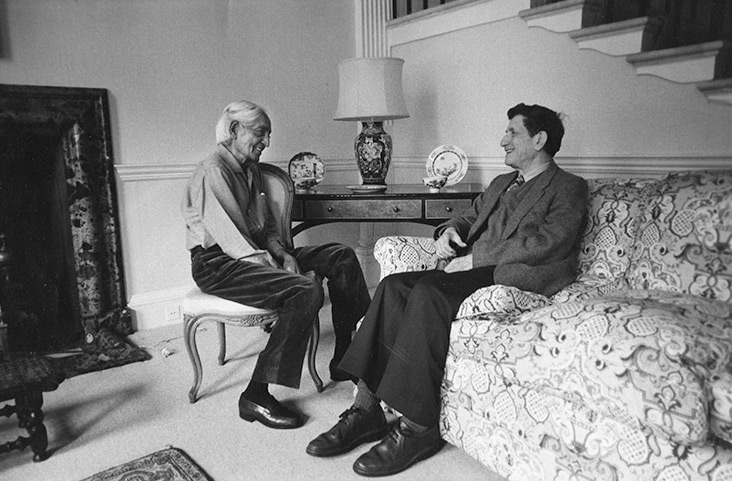
This is a delightful converstation on TIME. My own work informs us that the inverse of TIME applies and that an end does not exist because 1/T does not go to zero as T goes to infinity.
Way more important though is that we can pick a point in TIME and choose to actually go there. For example, All humanity can choose to enter the AGE of the Dinosaurs at its beginning knowing that hundreds of millions of years will pass before the nasty extinction event. Of course a few could go as well and then come back.
This extreme may not be possible or simply be too expensive to entertain. Yet you get my point. TIME may as well in infinate when we can stuff it coming and going forever and then stiill be thin on the ground.
If we are immortal, then what is it we want to experience over and over again? Progression???
Krishnamurti: The social conditioning, the religious conditioning, education, poverty, riches, climate, food; the outer. Which may condition the mind in a certain direction. But as one examines it a little more, the psychological conditioning is also from the outer, somewhat.
David Bohm: It is true that the way a person thinks is going to be affected by his whole set of relationships. But that doesn't explain why the conditioning is so rigid, and why it holds.
K: That is what I am asking too.
DB: Yes. If it were merely outward conditioning, one would expect it to be more easily changed. For example, you could have some other outward condition.
K: They have tried all that.
DB: Yes, the whole belief of Communism was that with a new society there would be a new man. But there have been none! I think that there is something fundamentally in the inward that holds, that resists change.
K: What is it? Will this question lead us anywhere?
DB: Unless we actually uncover it, it will lead nowhere.
K: I think one could find out, if one applied one's mind. I am just asking: is this question worthwhile, and is it related to what we have been discussing? Or shall we take up something else in relation to what we have been talking about?
DB: Well, I think that we have been talking of bringing about an ending to time, an ending to becoming. And we talked of coming into contact with the ground, through complete rationality. But now we could say that the mind is not rational.
K: Yes, we said man is basically irrational.
DB: This is perhaps part of the block. If we were completely rational, then we would of necessity come to this ground. Would that be right?
K: Yes. We were talking the other day about the ending of time. The scientists, through the investigation of matter, want to find out that point. Also, the so-called religious people have endeavored to find out—not only verbally—if time can stop. We went into that quite a bit, and we say it is possible for a human being, who will listen, to find out through insight the ending of time. Because insight is not memory. Memory is time, memory is experience, knowledge stored up in the brain, and so on. As long as that is in operation there is no possibility of having insight into anything. Total insight, not partial insight. The artist, the scientist, the musician, they all have partial insights and therefore they are still time-bound. Is it possible to have a total insight, which is the ending of the 'me', because the 'me' is time? Me, my ego, my resistance, my hurts, all that. Can that 'me end? It is only when that ends that there is total insight. That is what we discovered. And we went into the question, is it possible for a human being to end totally this whole structure of the 'me'? We said yes, and went into it. Very few people will listen to this because it is perhaps too frightening. And the question then arises: if the 'me' ends, what is there? Just emptiness? There is no interest in that. But if one is investigating without any sense of reward or punishment, then there is something. We say that something is total emptiness, which is energy and silence. Well, that sounds nice, but it has no meaning to an ordinary man who is serious and wants to go beyond it, beyond himself. And we pushed it further: is there something beyond all this? And we say there is.
DB: The ground.
K: The ground. Is it that the beginning of this inquiry is to listen? Will I, as a human being, give up my egocentric activity completely? What will make me move away from that? What will make a human being move away from this destructive, self-centered activity? If he will move away through reward, or punishment, then that is just another thought, motive. So discard that. Then what will make human beings renounce, if I may use the word renounce, it completely without motive? You see, man has tried everything in this direction—fasting, self-torture in various forms, abnegating himself through belief, and denying himself through identification with something greater. All the religious people have tried it, but the 'me' is still there.
No comments:
Post a Comment